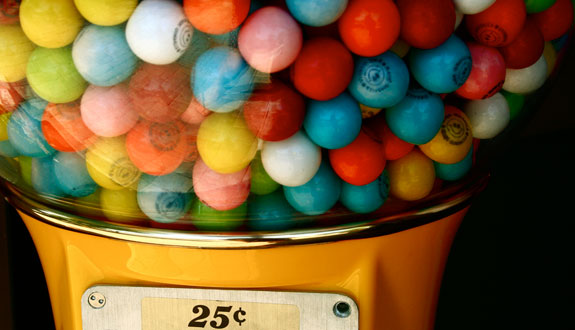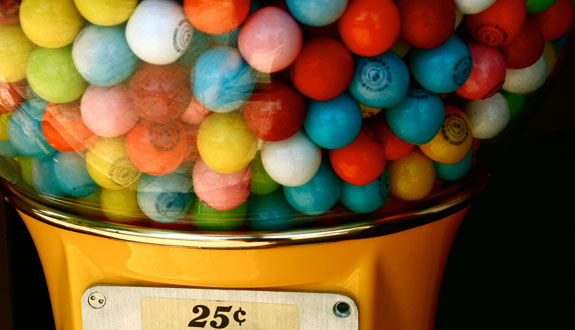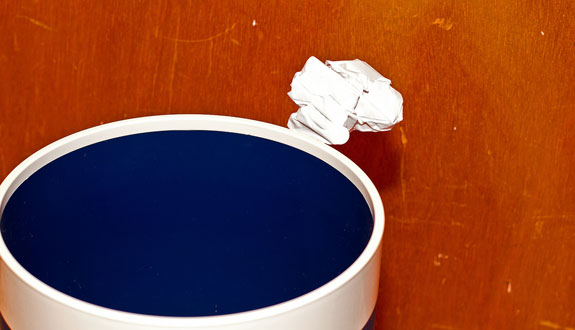
A recent study found a correlation between chewing gum consumption and test performance, and concluded that mastication-induced arousal causes improved performance — especially in the latter stages of a sustained task along the lines of, oh, say, an LSAT section.
Before any LSAT students shout that there’s a causal flaw, note that the study eliminated some alternate causes. The researchers split the subjects into a masticating group and a control group, which argues against any potential reversal of cause and effect. In other words, it seems unlikely that this is all because people who are better at tests like to chew gum. In a previous study, the subjects achieved the same benefits from sugar-free gum, so it doesn’t appear to be a case of a simple sugar high.
This isn’t the first time such a link has been found. Jonah Lehrer wrote about the benefits of mastication for Wired magazine all the way back in 2011. You may be saying, “Wait, Jonah Lehrer? The notorious plagiarist? Now I don’t believe any of this.” But if his involvement sways you to disbelieve the claims about chewing gum, you’re committing an ad hominem fallacy. Even if his work is untrustworthy, that doesn’t mean that what he reported is wrong. And he’s not an author of the published academic studies on the subject.
What does this mean for you as an LSAT test-taker? Unfortunately, LSAC’s policies don’t appear to permit gum-chewing during the LSAT. As such, I can’t recommend loading your LSAT test-day Ziploc bag with Trident.
The only recommendation I have is to refrain from chewing gum when you take a full LSAT practice test. You wouldn’t want your practice LSAT score to be inflated by an advantage you won’t get on the real thing.
Other than that, masticate away.




